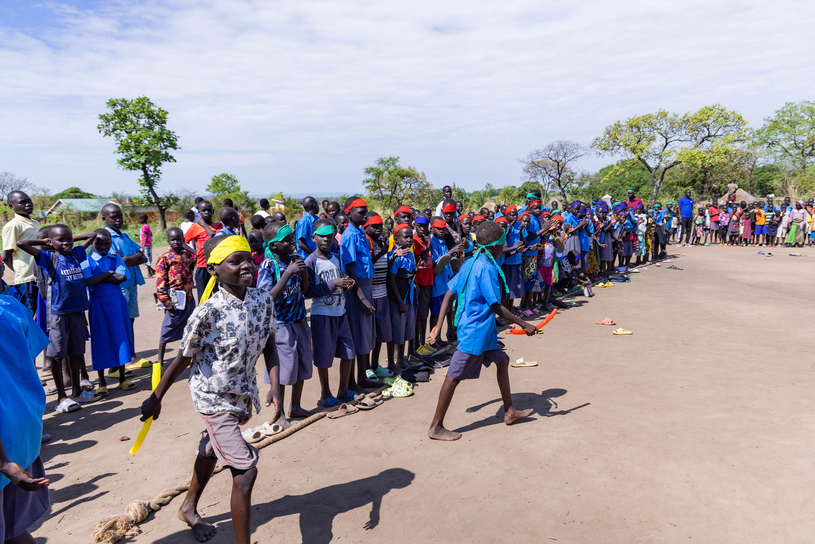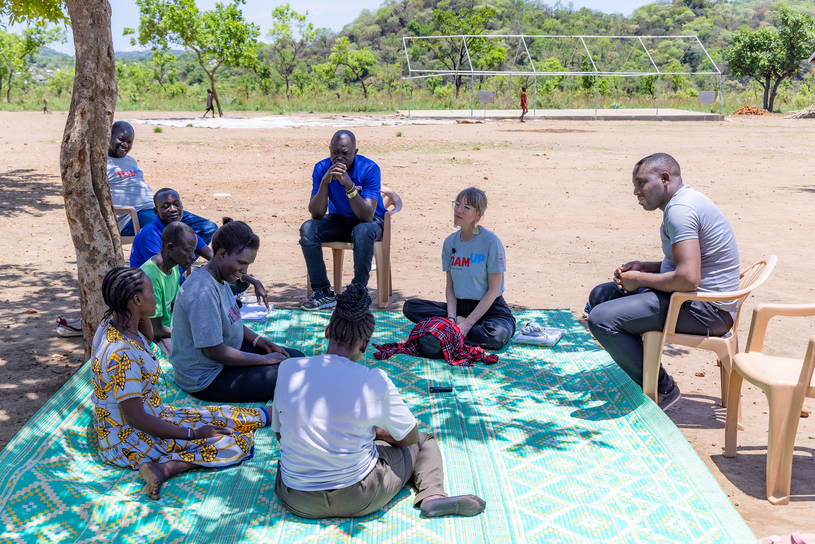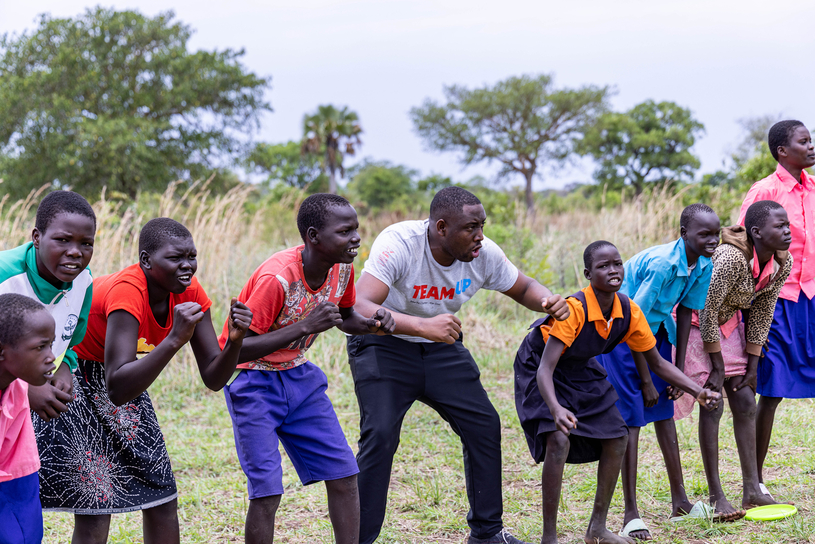TeamUp creating a conducive learning environment for children
Improving and strengthening learning and behaviors of children in school through movement-based play activities.
Apr 27, 2023

"Team-team, TeamUp!, Team-team, TeamUp!" These were the words the jolly children at Bright Future Primary School, Palabek Refugee Settlement in Lamwo District were chanting as they got ready for their TeamUp session. The school is among the 5 schools that implement TeamUp in the settlement.
The effects of conflict, violence, separation, war, have a huge impact on children’s development and psychosocial wellbeing. In a bid to promote holistic growth and development, PlayMatters has incorporated TeamUp, a psychosocial support child-facing intervention to address the social-emotional needs of refugees and host-community children in refugee settlements in Uganda. The program involves structured movement-based playful activities that are carried out by trained facilitators to strengthen the resilience of children while providing a sense of stability, body-awareness, and a safe-space for expression.
War Child Holland (WCH), a PlayMatters consortium partner, is leading the implementation of TeamUp activities. A team led by the Senior Project Coordinator (WCH), Joshua Opio, together with the TeamUp Program Specialist (WCH), Brian Areeba and TeamUp Global Trainer & Content Developer (WCH), Katia Verreault in March 2023 conducted a field visit to Palabek Refugee Settlement, Lamwo in Uganda to observe and experience TeamUp sessions firsthand, provide capacity building and mentorship to facilitators, field staff and ensure quality delivery of TeamUp sessions to the children.

The WCH team in a feedback session with TeamUp facilitators.
Among the 32 schools where PlayMatters is working in Lamwo, 5 schools have embedded TeamUp activities in their teaching and learning schedule for lower-primary classes reaching over 1,392 school-going children. A typical TeamUp session involves non-verbal movement-based facilitation with a clear, open structure session, consisting of different activities engaging the body and mind. Each activity has a specific goal, related to a social-emotional or psychosocial theme such as friendship and respect. TeamUp’s inclusivity is strengthened by the non-verbal modality to enhance inclusion of children from all backgrounds. To create a sense of stability and normalcy for the children, a “same place, same face, and same time” principle for the group activity is implemented to realize the intended outcomes of the sessions.
At Bright Future Primary School, Lamwo, where TeamUp is being implemented, the Head Teacher, Ms. Stella attributes a significant change in the behavior of refugee children, especially those with perpetual tribal conflicts and disputes, to TeamUp sessions that involve working together in groups, hence facilitating friendly and safe peer-to-peer interactions. Children learn to work together, make friends, relax, and can channel their energy and emotions.
The sessions have activities that engage the body both physically and mentally, designed to enhance children's capacities to regulate their emotions, ensure that children feel seen, heard and protected, improve social connectedness, and release stress and tension.

Mr. Brian Areeba (Center), WCH, joins the children during a TeamUp session at Lugede Primary School.
“When children play together from time-to-time, they develop togetherness and learn how to solve problems as a team,” says Joshua Opio. Refugee children are fearful and withdrawn and are unable to trust in others. These sessions make them feel safe, seen, heard, connected, and protected. This improves their attitude towards school, learning, teamwork and facilitates student retention.
“Every child looks forward to participating in the next TeamUp play session. Children can be like a child again. They are eager to learn, they’re well-behaved and this supports teachers to deliver lessons effectively to all the children in a classroom. TeamUp sessions have actively engaging learning through play activities that involve counting numbers, letters and reading words which contributes to a continuous learning environment during the guided play sessions,” he adds.
Isaac, a TeamUp trained facilitator, says that parents of children that have participated in TeamUp sessions can see that their children are happy playing, respecting, and supporting other children at home.
TeamUp Global Team (WCH) will continue providing mentorship, monitoring, and evaluation to guarantee quality and relevance of the program during the implementation of the PlayMatters project.